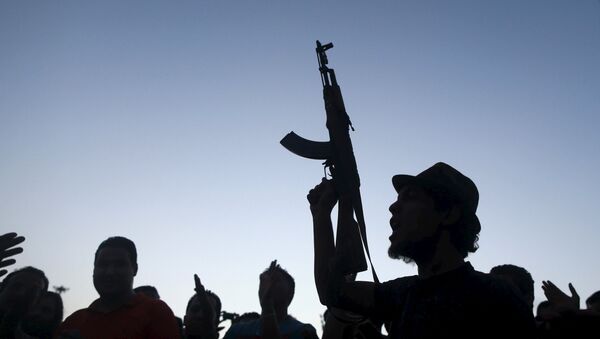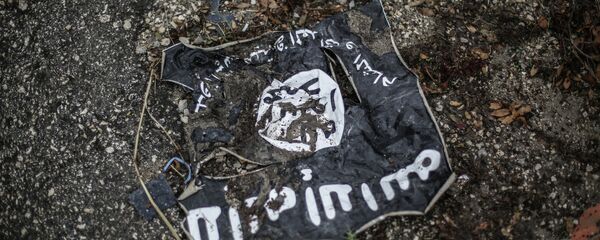WASHINGTON (Sputnik) — US official admissions that military forces could be sent to Libya expose the failure and confusion of earlier Obama administration policies that destroyed the Libyan state, academics in the United States and Europe told Sputnik.
"Now the United States is going to fight the people that they put in power in Libya rather recently," University of Louvain Professor and author of "Humanitarian Imperialism" Jean Bricmont told Sputnik. "All this illustrates the absurdity of ‘humanitarian’ or non-defensive wars."
Bricmont said any deployment of US troops in Libya to fight Islamic State incursions could only make conditions there worse, not better. He claimed any US intervention would be an attempt to repair the disaster of the 2011 NATO bombing campaign that toppled Libyan leader Muamar Gadaffi.
"What reasons do we have to believe that this time they are going to find the ‘good guys’ to put in power? This operation could be dubbed the after sales service of NATO," he argued.
The military intervention policies being considered reflect the reliance of US policymakers on brute force and their contempt for the traditional tools of diplomacy, statecraft and negotiation, Bricmont explained.
"If you are a hammer, every problem looks like a nail, if you are a big military machine with a strong air force, every conflict calls for bombing. No diplomacy anymore — that is for peaceniks," he noted.
"Every political adversary is a new Hitler and every opponent of war a Munich-style appeaser. That is exactly what was claimed with Libya in 2011. Now the US and NATO have to pick up the pieces of what they foolishly broke," he pointed out.
Institute for Gulf Affairs analyst Adam Whitcomb told Sputnik that Washington’s war mindset had led the United States into long and costly conflicts in Vietnam, Afghanistan and Iraq and the same danger existed in Libya.
"In the long run, a new military commitment in Libya could be very entrenching for the United States and its major allies such as Britain, France and Italy that have previously been involved in the country. It could be the makings of a new quagmire," he noted.
Whitcomb also suggested that US leaders wanted to boost their direct military involvement in Libya to compensate for their crumbling influence over the Syrian conflict and the efforts to end it.
The growing enthusiasm of Obama administration policymakers to send military forces into Libya should be seen in the context of the growing difficulties Washington faces in promoting the Syrian peace talks because of the dissonance between Saudi Arabia and Iran.
"The increased frustration over the stalling Syrian peace process explains the new eagerness for the United States to intervene directly in Libya," Whitcomb explained.
The less influence the United States had in the Syrian conflict or in efforts to end it, the more natural it was for Washington to try and assert its influence more directly elsewhere, Whitcomb concluded.





